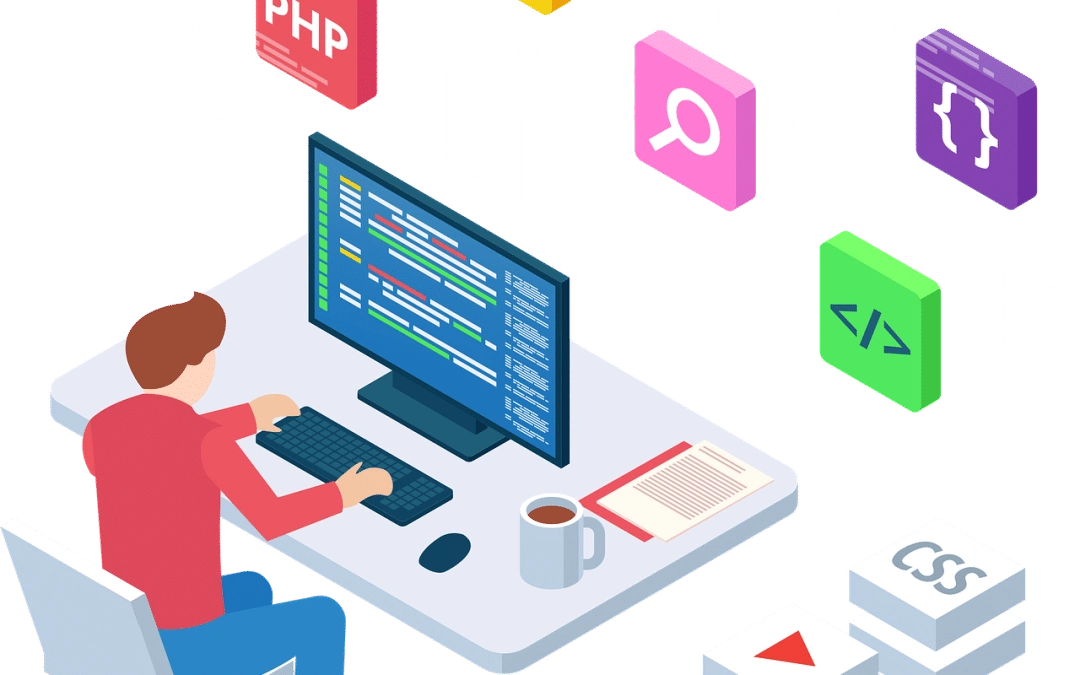
The world of programming is vast, with different languages catering to different needs. Whether you're developing web applications, artificial intelligence, game engines, or embedded systems, choosing the right programming languages can set you apart as a versatile and capable developer. But is there a set of languages that would allow a programmer to do literally anything? In this guide, we’ll explore the essential programming languages that provide the most comprehensive skill set across different domains.
Why Learn Multiple Programming Languages?
Mastering multiple programming languages offers several benefits:
- **Flexibility & Adaptability** – Work on diverse projects across industries.
- **Higher Job Market Value** – Become a full-stack or polyglot developer.
- **Problem-Solving Versatility** – Choose the best tool for each task.
- **Cross-Platform Development** – Build software for web, mobile, desktop, and hardware.
Core Programming Languages for Every Developer
1. Python – The All-Purpose Powerhouse
Python is one of the most versatile languages, used in web development, automation, data science, AI, and more.
Why Learn Python?
- Beginner-friendly and easy to read.
- Used in **AI, machine learning, [web development](https://bkthemes.design/web-design-web-development-services/), and automation**.
- Large community and extensive libraries (TensorFlow, Django, Flask).
2. JavaScript – The Web’s Backbone
JavaScript is essential for web development, powering both the frontend and backend (via Node.js).
Why Learn JavaScript?
- Enables **dynamic web applications** and full-stack development.
- Works with frameworks like **React, Angular, and Vue**.
- Used for **server-side development** (Node.js) and mobile apps (React Native).
3. C – The Foundation of Programming
C is a low-level programming language that influences modern programming concepts.
Why Learn C?
- Provides **deep understanding of memory management**.
- Used in **embedded systems, operating systems, and game engines**.
- A stepping stone to learning **C++, Rust, and Go**.
4. C++ – High-Performance Computing & Game Development
C++ is an extension of C and is widely used in gaming, finance, and high-performance applications.
Why Learn C++?
- Powers **game engines like Unreal Engine**.
- Used in **finance, robotics, and large-scale applications**.
- Supports **object-oriented programming (OOP)** and efficient resource management.
5. Java – Enterprise & Mobile Development
Java remains one of the most widely used programming languages, especially for enterprise applications and Android development.
Why Learn Java?
- Platform-independent via the **JVM (Java Virtual Machine)**.
- Used in **Android development, large-scale applications, and backend systems**.
- Enterprise support with frameworks like **Spring and Hibernate**.
6. SQL – The Language of Databases
SQL (Structured Query Language) is necessary for handling databases and managing structured data.
Why Learn SQL?
- Essential for **data retrieval, storage, and analytics**.
- Works with databases like **MySQL, PostgreSQL, and SQL Server**.
- Used in **data science, [web development](https://bkthemes.design/web-design-web-development-services/), and business intelligence**.
7. Swift – Apple Development Made Easy
Swift is Apple's official programming language for iOS and macOS development.
Why Learn Swift?
- Optimized for **performance and safety**.
- Essential for **iOS app development**.
- Works seamlessly with **Apple’s ecosystem (Xcode, Cocoa Touch, SwiftUI)**.
8. Rust – Memory Safety Without Garbage Collection
Rust is an emerging language praised for its safety and performance, making it ideal for system-level programming.
Why Learn Rust?
- Eliminates memory-related bugs **without needing a garbage collector**.
- Used in **game engines, blockchain, and cloud computing**.
- Gaining traction in **web assembly and embedded systems**.
9. Go (Golang) – The Cloud-Native Language
Go is designed for scalability, performance, and simplicity, making it a go-to language for cloud-based applications.
Why Learn Go?
- Used in **high-performance servers, networking, and cloud infrastructure**.
- Supports **concurrent programming** with goroutines.
- The language behind **Docker and Kubernetes**.
10. PHP – The Web’s Workhorse
Despite competition from modern frameworks, PHP remains dominant in content management systems like WordPress.
Why Learn PHP?
- Powers **over 75% of websites**.
- Used in **backend development, WordPress themes, and plugins**.
- Supported by frameworks like **Laravel and Symfony**.
Which Programming Languages Should You Learn First?
If you’re new to programming, start with Python or JavaScript due to their simplicity and industry demand. For system-level programming, C or Rust is recommended. If you’re interested in mobile development, Swift (iOS) or Java (Android) is essential.
Conclusion
No single programming language can do everything, but by mastering Python, JavaScript, C, Java, and SQL, a programmer can build web applications, mobile apps, databases, AI systems, and even embedded software. Expanding into Rust, Go, Swift, and PHP further broadens your expertise. By continuously learning and adapting to industry trends, you can become a versatile and future-proof developer capable of tackling any challenge!
📧 Stay Updated
Get the latest web development tips and insights delivered to your inbox.




